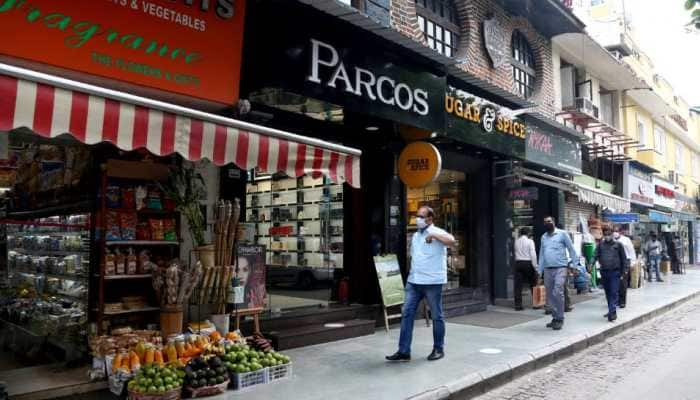Kyrgyzstan uprising - A victory for Russia?
A bloody uprising in the Central Asian republic of Kyrgyzstan has altered the geopolitical calculations of the region once again.
Trending Photos
)
 Kamna Arora
A bloody uprising in the Central Asian republic of Kyrgyzstan has altered the geopolitical calculations of the region once again. In 2005, the `Tulip revolution`, as it was known, had pushed President Askar Akayev out of power. And in 2010, another revolution has seen Akayev’s successor, President Kurmanbek Bakiyev flee the capital, Bishkek.
“You can call this a revolution,” Roza Otunbayeva, who is heading the transitional government, said. “You can call this a people’s revolt. Either way, it is our way of saying that we want justice and democracy.”
The tumult engulfed Kyrgyzstan so intensely that police had to use tear gas, smoke grenades and live bullets to disperse anti-government demonstrators, who had gathered around government buildings to protest against the government’s “brutality and corruption”. The demonstrators were also angry about the government’s recent decision to increase utility rates sharply. The whole brutal fiasco left more than 70 dead and around 1,000 wounded.
The opposition did not take much time to dissolve Parliament and finalise its interim cabinet. The transitional government led by former foreign minister Otunbayeva has also promised to hold fresh presidential elections in six months’ time. “Power is now in the hands of the people’s government,” she said in a televised address. Will Kyrgyzstan be able to land on its feet after the new regime takes over? It’s anybody’s guess.
The Kyrgyz President has, meanwhile, issued a statement from an unknown location saying he would not resign. He had left the capital in an aeroplane on April 07, after unsuccessfully trying to control the situation by imposing a curfew on the capital and the three regions in the north and centre of the country. According to various rumours, he is hiding in the south of the country to rally support in his home city of Osh. Otunbayeva says Bakiyev had fled Bishkek to seek support in the central Jalal-Abad region.
It’s Russia Vs US
The story is not over yet. Besides internal the chaos, Kyrgyzstan is firmly entrenched in the latest big-power tussle between the former Cold war foes - the US and Russia, thanks to its strategic location. The impoverished country hosts airbases for both the countries.
As soon as the news spread about upheaval in Kyrgyzstan, rumours sprang up about a Russian hand behind the bloody uprising. The Russian Foreign Ministry outrightly rejected the claims of Moscow’s involvement as “crass” and “groundless”. However, Prime Minister Vladimir Putin held a telephonic conversation with Otunbayeva and offered all necessary humanitarian assistance to the Central Asian nation. In fact, Omurbek Tekebayev, a former Kyrgyz opposition leader who took charge of constitutional matters in the new government, has stated that "Russia played its role in ousting Bakiyev”.
The deputy head of Kyrgyzstan`s provisional government, Almazbek Atambyaev, is on a trip to Moscow to reportedly seek economic aid from Russia.
The tussle between Russia and the US over gaining significant hold on ‘strategically located’ Kyrgyzstan began last year when Bakiyev announced he was closing US base at Manas following a hefty aid pledge from Moscow. The Manas air base is vital for the US for its operations, as around 50,000 troops pass through every month on their way in and out of Afghanistan. Following Bakiyev’s announcement, US President Barack Obama agreed to increase rent payments more than threefold and managed to retain the rights to use the base.
This led the opposition to criticise Bakiyev. Even the US came under fire for acceding to the demands of the “corrupt” leader. More than anything else, it left Russia completely infuriated as it failed to bar the US from increasing its presence in Moscow’s geopolitical backyard.
“The US and EU are big losers today. Both have dampened their criticism of Bakiyev`s political and corrupt governance practices in the name of preserving stability in the country,” said Alexander Cooley, a professor at Columbia University in New York.
Alexy Malashenko of the Moscow Carnegie Centre feels that although Russia has no role to play in the toppling of Bakiyev, the country will be happier to deal with Otunbayeva, who shares good ties with Putin.
Putin “knows the position of the opposition in Kyrgyzstan. Roza and her colleagues, they visited Moscow a month ago approximately”, he told a newspaper.
“They met with some people from (Kremlin-backed political party) United Russia... and everybody in Moscow knows the general idea about Kyrgyz-Russian relations.”
The news is quite bothersome for the US. “Over the next few months we will likely see either the termination or renegotiation of many of the contracts and payments related to base operations, especially the fuel deals,” Cooley noted.
Kamna Arora
A bloody uprising in the Central Asian republic of Kyrgyzstan has altered the geopolitical calculations of the region once again. In 2005, the `Tulip revolution`, as it was known, had pushed President Askar Akayev out of power. And in 2010, another revolution has seen Akayev’s successor, President Kurmanbek Bakiyev flee the capital, Bishkek.
“You can call this a revolution,” Roza Otunbayeva, who is heading the transitional government, said. “You can call this a people’s revolt. Either way, it is our way of saying that we want justice and democracy.”
The tumult engulfed Kyrgyzstan so intensely that police had to use tear gas, smoke grenades and live bullets to disperse anti-government demonstrators, who had gathered around government buildings to protest against the government’s “brutality and corruption”. The demonstrators were also angry about the government’s recent decision to increase utility rates sharply. The whole brutal fiasco left more than 70 dead and around 1,000 wounded.
The opposition did not take much time to dissolve Parliament and finalise its interim cabinet. The transitional government led by former foreign minister Otunbayeva has also promised to hold fresh presidential elections in six months’ time. “Power is now in the hands of the people’s government,” she said in a televised address. Will Kyrgyzstan be able to land on its feet after the new regime takes over? It’s anybody’s guess.
The Kyrgyz President has, meanwhile, issued a statement from an unknown location saying he would not resign. He had left the capital in an aeroplane on April 07, after unsuccessfully trying to control the situation by imposing a curfew on the capital and the three regions in the north and centre of the country. According to various rumours, he is hiding in the south of the country to rally support in his home city of Osh. Otunbayeva says Bakiyev had fled Bishkek to seek support in the central Jalal-Abad region.
It’s Russia Vs US
The story is not over yet. Besides internal the chaos, Kyrgyzstan is firmly entrenched in the latest big-power tussle between the former Cold war foes - the US and Russia, thanks to its strategic location. The impoverished country hosts airbases for both the countries.
As soon as the news spread about upheaval in Kyrgyzstan, rumours sprang up about a Russian hand behind the bloody uprising. The Russian Foreign Ministry outrightly rejected the claims of Moscow’s involvement as “crass” and “groundless”. However, Prime Minister Vladimir Putin held a telephonic conversation with Otunbayeva and offered all necessary humanitarian assistance to the Central Asian nation. In fact, Omurbek Tekebayev, a former Kyrgyz opposition leader who took charge of constitutional matters in the new government, has stated that "Russia played its role in ousting Bakiyev”.
The deputy head of Kyrgyzstan`s provisional government, Almazbek Atambyaev, is on a trip to Moscow to reportedly seek economic aid from Russia.
The tussle between Russia and the US over gaining significant hold on ‘strategically located’ Kyrgyzstan began last year when Bakiyev announced he was closing US base at Manas following a hefty aid pledge from Moscow. The Manas air base is vital for the US for its operations, as around 50,000 troops pass through every month on their way in and out of Afghanistan. Following Bakiyev’s announcement, US President Barack Obama agreed to increase rent payments more than threefold and managed to retain the rights to use the base.
This led the opposition to criticise Bakiyev. Even the US came under fire for acceding to the demands of the “corrupt” leader. More than anything else, it left Russia completely infuriated as it failed to bar the US from increasing its presence in Moscow’s geopolitical backyard.
“The US and EU are big losers today. Both have dampened their criticism of Bakiyev`s political and corrupt governance practices in the name of preserving stability in the country,” said Alexander Cooley, a professor at Columbia University in New York.
Alexy Malashenko of the Moscow Carnegie Centre feels that although Russia has no role to play in the toppling of Bakiyev, the country will be happier to deal with Otunbayeva, who shares good ties with Putin.
Putin “knows the position of the opposition in Kyrgyzstan. Roza and her colleagues, they visited Moscow a month ago approximately”, he told a newspaper.
“They met with some people from (Kremlin-backed political party) United Russia... and everybody in Moscow knows the general idea about Kyrgyz-Russian relations.”
The news is quite bothersome for the US. “Over the next few months we will likely see either the termination or renegotiation of many of the contracts and payments related to base operations, especially the fuel deals,” Cooley noted.
Stay informed on all the latest news, real-time breaking news updates, and follow all the important headlines in india news and world News on Zee News.
Advertisement
Live Tv
Advertisement







)
)
)
)
)
)
)
)
)
)
